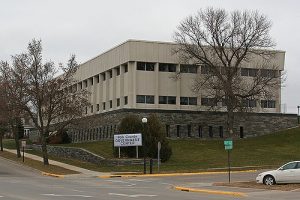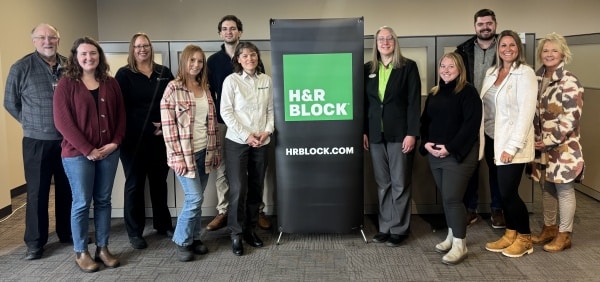The Polk County Commissioners spent two days reviewing preliminary 2020 Polk County budgets this week on Tuesday and Wednesday. The commissioners will set a preliminary levy Tuesday, September 24 and formally set the date for the county’s Truth in Taxation hearing for Tuesday, December 3 explains Polk County Commissioner Chuck Whiting. “Counties and Cities in Minnesota are required to set a preliminary levy that gets included in a Truth in Taxation statement that gets sent to all property taxpayers when the county’s budget hearing is,” said Whiting. “For Polk County that will be 6:00 p.m. on Tuesday, December 3. We’ll formally set that next week when we set the preliminary levy. The preliminary levy is meant to give the taxpayer an indication of what the unit of government is looking at for a levy and how that affects them. They’ll get something in the mail that shows the county, their city or township, the school district, a couple of other jurisdiction types so they know what they could be looking at for property taxes in the following year.”
Once the preliminary levy adopted the county will be capped at that amount, meaning they can only maintain or decrease the levy. Usually, a preliminary levy will be set higher than staff, and elected officials want the levy to be to give staff time to continue working the budget said, Whiting. “Typically what happens is you set it a little higher than you want to know you are going to reduce it by the time you’re at the hearing,” said Whiting. “We’ve done that before generally in the 5-6 percent range. We’ll probably be in that again for next year as percentage increase which will formally do by resolution next week. And then myself, the board, and department heads work on the budget between now and the end of November we’ll work to get the levy well underneath that. The target is typically 3-3.5 percent. We’ve been doing that for several years now. That allows us to pay for county operations, of course, recognizing the levy itself is only about one-third of the county’s revenues. So, sometimes the demand on the levy has to do with the variation on those other revenues not just increased cost.”
A levy increase of 2.2 percent would total about $500,000 added to the budget, with a 6.5 percent levy adding $1.5 million. The commissioners and Whiting discussed the likely upcoming legal conclusion to the Enbridge tax appeal on Wednesday. “Probably the biggest issue that is out there that could affect us is the Enbridge tax appeal,” said Whiting. “We’ve been talking about that it seems like forever. At some point, we’re going to get told what we have to pay Enbridge back for tax years ’13, ’14, and ’15. And of course, that’s its own issue.”
A ruling from the courts to pay back money would affect 13 counties including Polk about half of which likely wouldn’t be able to afford to pay back the taxes, and the state may need to step in for them. The consensus from the group was to wait for the court decision before making any plans. Commissioner Gary Willhite said if other counties may be getting help from the state because they don’t have the funds to pay back Enbridge than our citizens should also be able to raise the complaint to the legislature that they shouldn’t be saddled with Polk County depleting its reserves for its portion.
As the county works through the budgets over the next couple of months, they will identify one-time capital purchases they can use fund balances for in addition to cuts. Whiting explains the county will see additional savings by entering lease agreement for the county fleet vehicles and the sheriff’s office vehicles. “We’re looking at leasing as many vehicles as we can instead of purchasing them,” said Whiting. “We can turn our vehicles over faster. What some departments are looking at is instead of the cost of four cars they can lease seven cars, and it will cost about the same, and they can get rid of some that are costly on the maintenance side. I haven’t seen the numbers. Everybody has been working on it, department by department. Case in point, the sheriff’s office has a separate agreement because the sheriff is elected, so we had to act on that. Plus, they needed to order their vehicles for next year. I believe they went to eight leased vehicles when we probably would’ve been purchasing five. It will cost less, and their budget reflects that. What we’re discussing now is what is the maintenance program going to look like when we have leases versus owning the vehicles. I can’t tell you exact numbers on this, but it is less.”
There are also a significant number of building repairs that could be removed from the budget in favor of bonding as a large capital improvement project said, Whiting. “One of the things we try to decide on, particularly with about a $2.4 million remodeling, that’s a little bit more than we’re comfortable with going to reserves for or raising taxes for in one swoop,” said Whiting. “So, we do a capital improvement bond. We’ll bond for that and payback over ten years. Those will still be on the levy. So, we try to be careful with what we use that for. It’s the kind of thing that would be a normal approach. We did that about 4 or 5 years ago, so I’m using that as a template going forward. That takes a lot of that off the levy for 2020. We’ll see the bond payment in 2021 and must adjust for it. There is no free lunch, but the time has come that we need to reinvest in that building in East Grand Forks. Hopefully, that will take care of that building for 12-15 years before we have to do something again.”
Polk County has some challenges as one of the largest counties in the state, but Whiting says though it leads to some tough decisions, he believes the county provides residents with the best value it can. “We do what we need to do,” said Whiting. “Obviously, with the population and the geographic area we have, it creates some challenges, certainly for roads. I’m sure we have more highway miles per capita than a lot of counties. Social Services and the travel time to get to areas can be a challenge. We have multiple offices from east to west, but that’s what we’ve got so we do the best we can. We want to make sure that what we’re doing gives the value to our residents the best we can. Not all decisions are easy, and not everything gets done perfectly. But I think all in all from what I’ve seen compared to other places I’ve been we do a pretty good job.”
Tags:



